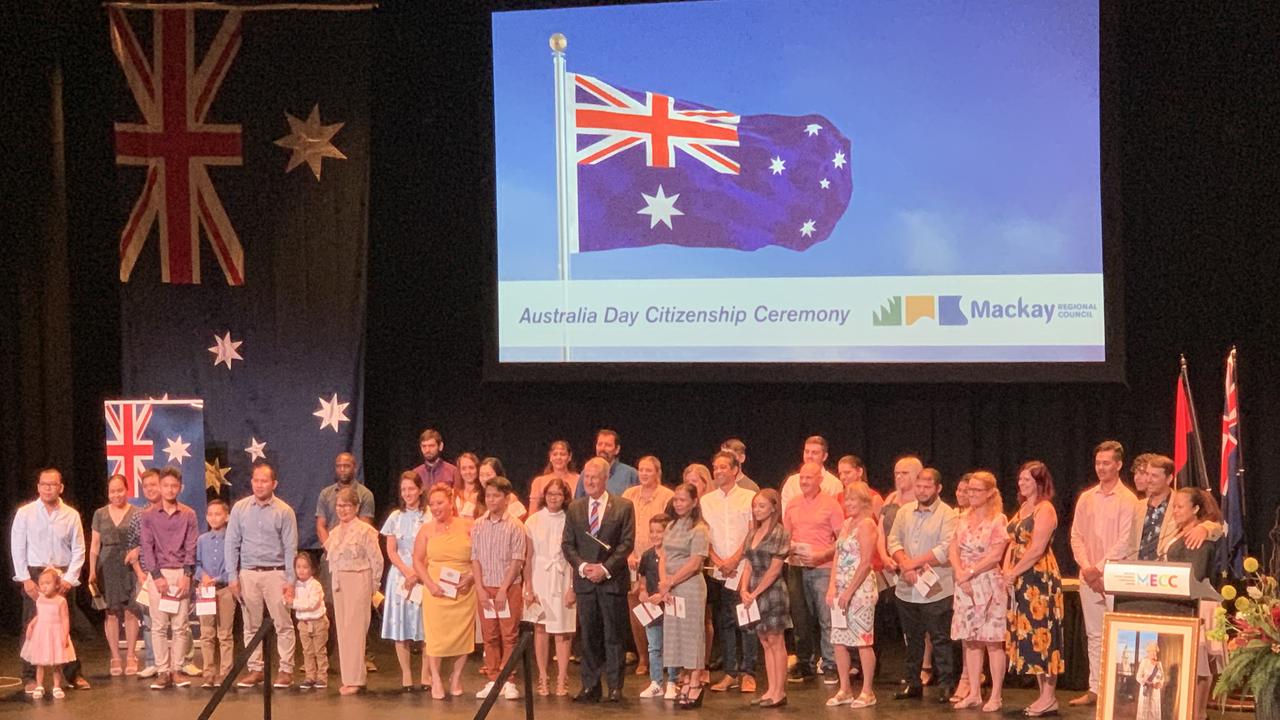‘Any state could stop celebrating Australia Day on January 26’
One fact that’s often overlooked in the debate around changing Australia Day is that the Federal Government doesn’t control public holidays.

As debate continues over whether the date of Australia Day should be changed, there’s often one fact that’s overlooked — it’s the states and territory governments that actually set public holidays.
One of the reasons why it took so long for Australia to agree on a date for Australia Day — it wasn’t until 1994 that it was consistently celebrated on January 26 — is because some states and territories scheduled a public holiday for the nearest Monday instead.
Australia Institute democracy and accountability senior researcher Bill Browne said some dates are described as national public holidays by the Federal Government, for example around Easter and Christmas but it’s his understanding these dates are only set because every state and territory has agreed to schedule public holidays on these days.
“Certainly any state or territory could remove the public holiday on the 26th of January and stop celebrating or marking Australia Day on that day,” Mr Browne said.
“It could be possible to have a national day set by the Australian Government, even if it’s not a public holiday in every state.”
“I think people neglect the states as key decision makers in this process given it is celebrated nationally,” he said.
However, Mr Browne said it was difficult to imagine any change to Australia Day happening unilaterally at federal or state and territory level.
“That said, we’ve already seen some local councils doing less to mark Australia Day or doing anything to celebrate at all. I would not be surprised to see some states or territories backing away from marking the date as much as they do now,” Mr Browne said.
He noted the Federal Government had a variety of “soft powers” it could use to push back against any moves. As an example it stopped local councils from not holding citizenship ceremonies on Australia Day.
January 26 is not a day for celebration – that’s why news.com.au is campaigning to change the date of Australia Day, so we can celebrate the best country in the world, without leaving anyone behind.

“It’s not too unusual for councils to take a forward stance on issues and to raise the ire of the Federal Government, as has played out in the past,” Mr Browne said.
While the Covid pandemic response may have made Australians more aware of the powers states and territories still have to enforce border restrictions and act independently, Mr Browne said it was “easy to overegg this kind of revival of states”.
“The Federal Government still has the power of treaty making, border control and defence,” he said.
There is also a fiscal imbalance where the Federal Government collects more money than it spends so Mr Browne said it had an influence over the states because of its control over funding.
“We’re not going to see the disappearance of the Federal Government, it’s just a matter of degree, but we could see state governments becoming more influential.”
If Australia Day is to be changed, Mr Browne suspects a level of “direct democracy” will be involved.
“The government might turn to a plebiscite or national poll to test the position of the public,” he said.
He pointed to the heated debate on the national anthem, which was then decided through a poll in 1977. Voting was voluntary and Australians chose the song Advance Australia Fair ahead of God Save The Queen, Song Of Australia and Waltzing Matilda.
“I suspect that when we look at when and how Australia Day might change, a likely element will be popular endorsement for whichever decision they end up pursuing,” he said.
“It could go either way, with the Federal Government providing the impetus and getting the states on board, or the states providing the impetus and getting the Federal Government on board.
“Depending on which way it happened, it might take a different structure, ultimately if they were to remove January 26 as a holiday, it would require state and territory legislation.”
Mr Browne said this meant the Federal Government could change the national holiday but it could remain a public holiday in some states.
“There’s room for change in both directions, whoever happens to be in power at the time, all kinds of factors could play into how the change might unfold.
“In practice this will likely be decided by consensus.”






